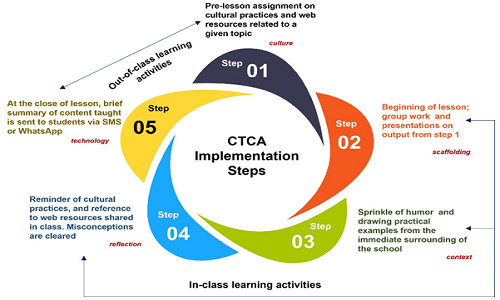Investigating the Impact of Culturo-Techno-Contextual Approach on Enhancing Critical Thinking in Science: Gender Dynamics and Learning Efficacy
DOI:
https://doi.org/10.31258/jes.8.4.p.656-670Keywords:
Gender, Culturo-Techno-Contextual Approach, Learning Efficacy, ScienceAbstract
This study aimed to evaluate the effectiveness of Culturo-Techno-Contextual Approach (CTCA) in enhancing students’ critical thinking abilities in science with focus on hydrocarbon and to examine the gender impact on these abilities within the experimental group. A total of 127 science students for both the control (54 students) and the experimental group (73 students) in senior secondary year two (SS2) and 47 females and 26 males in the experimental group participated in the study. The research design was quasi-experimental (a pre-test post-test non-equivalent group) design. The instrument used to gather data was the hydrocarbon critical thinking test (HCTT). The results showed no significant difference in post-test mean scores between male and female students, although the CTCA treatment significantly improved students' overall critical thinking. No interaction effect between treatment and gender was observed. These findings highlight CTCA's potential to alleviate learning challenges in science and bridge the critical thinking gap between male and female students.
Downloads

Downloads
Published
Issue
Section
License

This work is licensed under a Creative Commons Attribution-NonCommercial-ShareAlike 4.0 International License.











